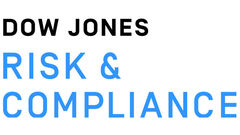
What is MEU? And what does the new US sanctions list mean for you?
US BIS has introduced a new US sanctions list: The MEU list. What is it about? And how does it affect your trade with Burma, China, Russia, and Venezuela?

US BIS has introduced a new US sanctions list: The MEU list. What is it about? And how does it affect your trade with Burma, China, Russia, and Venezuela?
The US Department of Commerce – Bureau of Industry and Security (BIS) added a new list to the Export Administration Regulations (EAR) on December 23, 2020: The Military End User (MEU) List. The new US sanctions list (MEU list) can be found in Supplement No. 7 to Part 744 of the EAR.
BIS Rule in the US Federal Register
The new MEU list includes Military End Users from Burma, China, Russia, and Venezuela. With its publication, BIS aims to restrict the acquisition of certain US goods and technologies by military end users. Specifically, this involves goods and technologies whose ECCN (Export Control Classification Number) and description are listed in Supplement No. 2 to Part 744 of the EAR.
In the view of the US authorities, the parties listed in this new US sanctions list pose a significant risk of using the respective goods and technologies for military end use purposes or may be classified as military end users in line with § 744.21 of the EAR. For this reason, corresponding exports, re-exports, or domestic shipments to parties included on the MEU list are subject to license requirements.
The answer to this question depends on whether a company falls within the scope of the new US sanctions list. The MEU list affects companies that, by definition, constitute a "US person" or engage in trade with the relevant US products (from Supplement No. 2 to Part 744 of the EAR).
Important: The legal consequences of a designation on the MEU list are different from those under comprehensive financial sanctions. It does not represent a full ban on provisions, which prohibits the provision of funds or economic resources to sanctioned parties. The MEU sanctions list merely aims to restrict trading defined goods with military end users from Burma, China, Russia, or Venezuela.
If the conditions for such trade are met, affected companies are subject to licensing requirements for these transactions with end users from Burma, China, Russia, or Venezuela on the MEU list.
When BIS published the new MEU list, the US authority also expressed a warning that the new sanctions list is not an exhaustive list of all military end users. This means that further end users that do not appear on the MEU list are not automatically exempt from the statutory prohibitions.
In other words, exporters must continue to ensure that no controlled goods are made available to military end users from Burma, China, Russia, or Venezuela – regardless of whether they appear on the MEU list or not. And that no such goods are shipped if they are intended for military end use in these countries – even if no MEU-listed parties are involved in such transactions.
The new US sanctions list (MEU list) was established by BIS to assist exporters in screening their customers for military end users or involvement in military end use when exporting, re-exporting, or transferring defined US goods. These developments put a new spotlight on risk analyses around the identity of customers (Know Your Customer (KYC)). KYC principles involve careful due diligence – with complex questions about trading partners, including their ownership structures, in new as well as existing business relationships.

Bans on indirect provisions? PEP List? Adverse Media? Comprehensive security for your transactions with AEB software and extended content from Dow Jones.
AEB's Compliance Screening software manages screening against the new US sanctions list (MEU list) automatically in the background of your transactions – if desired, also integrated into SAP®, Salesforce, Microsoft Dynamics 365, and other ERP and CRM systems. An overview of available sanctions lists from the US and many other jurisdictions in AEB’s Compliance Screening can be found here.
Just get in touch with our product experts and make an appointment to discuss your individual compliance screening requirements.